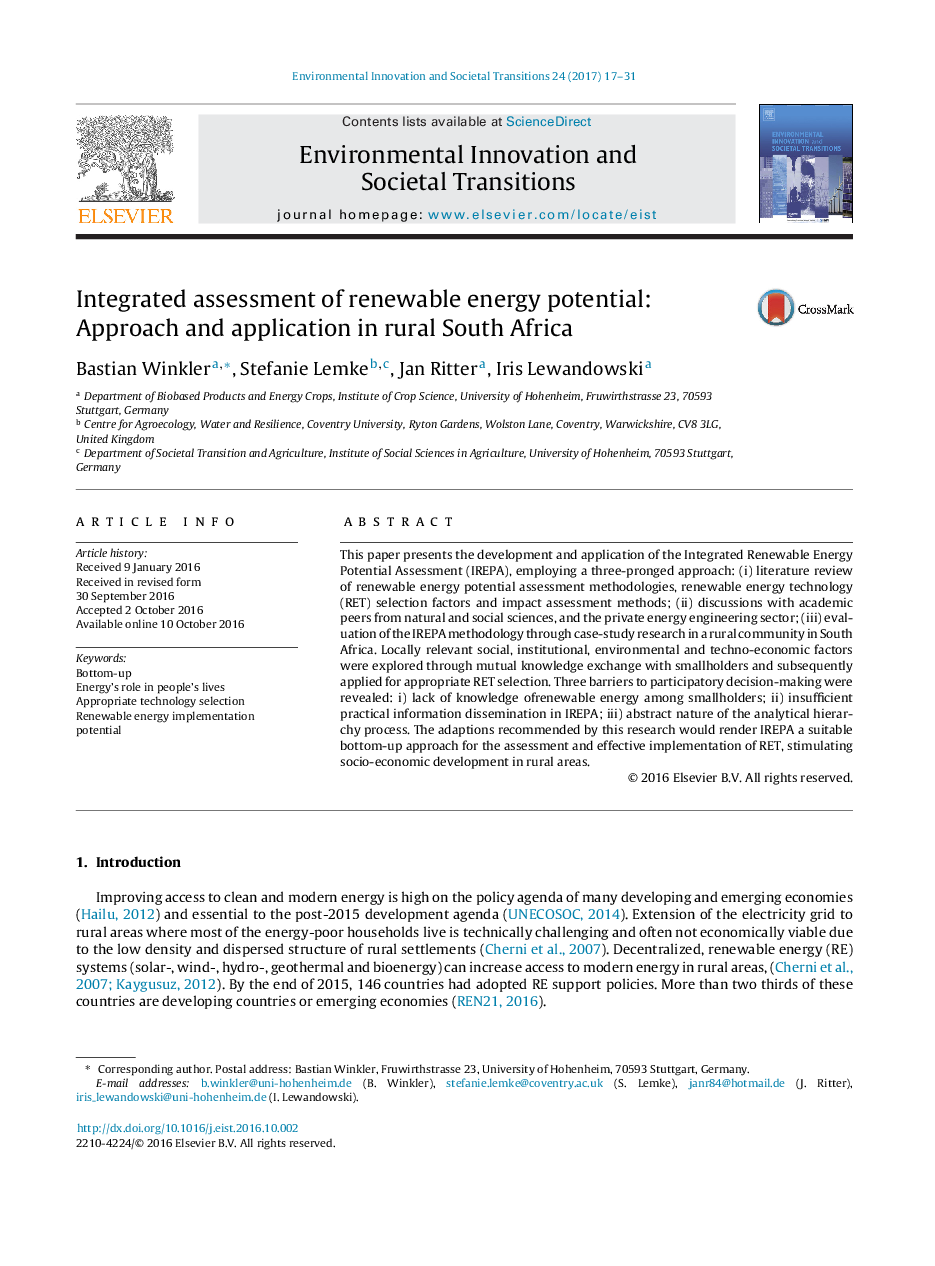| Article ID | Journal | Published Year | Pages | File Type |
|---|---|---|---|---|
| 6464190 | Environmental Innovation and Societal Transitions | 2017 | 15 Pages |
â¢Review of methods and factors for assessing renewable energy potentials.â¢Development of interdisciplinary, participatory, bottom-up approach.â¢Locally relevant criteria required for appropriate technology selection.â¢Socio-cultural factors largely determine appropriateness of RE technologies.â¢Mutual knowledge exchange and education required for RE implementation.
This paper presents the development and application of the Integrated Renewable Energy Potential Assessment (IREPA), employing a three-pronged approach: (i) literature review of renewable energy potential assessment methodologies, renewable energy technology (RET) selection factors and impact assessment methods; (ii) discussions with academic peers from natural and social sciences, and the private energy engineering sector; (iii) evaluation of the IREPA methodology through case-study research in a rural community in South Africa. Locally relevant social, institutional, environmental and techno-economic factors were explored through mutual knowledge exchange with smallholders and subsequently applied for appropriate RET selection. Three barriers to participatory decision-making were revealed: i) lack of knowledge ofrenewable energy among smallholders; ii) insufficient practical information dissemination in IREPA; iii) abstract nature of the analytical hierarchy process. The adaptions recommended by this research would render IREPA a suitable bottom-up approach for the assessment and effective implementation of RET, stimulating socio-economic development in rural areas.
